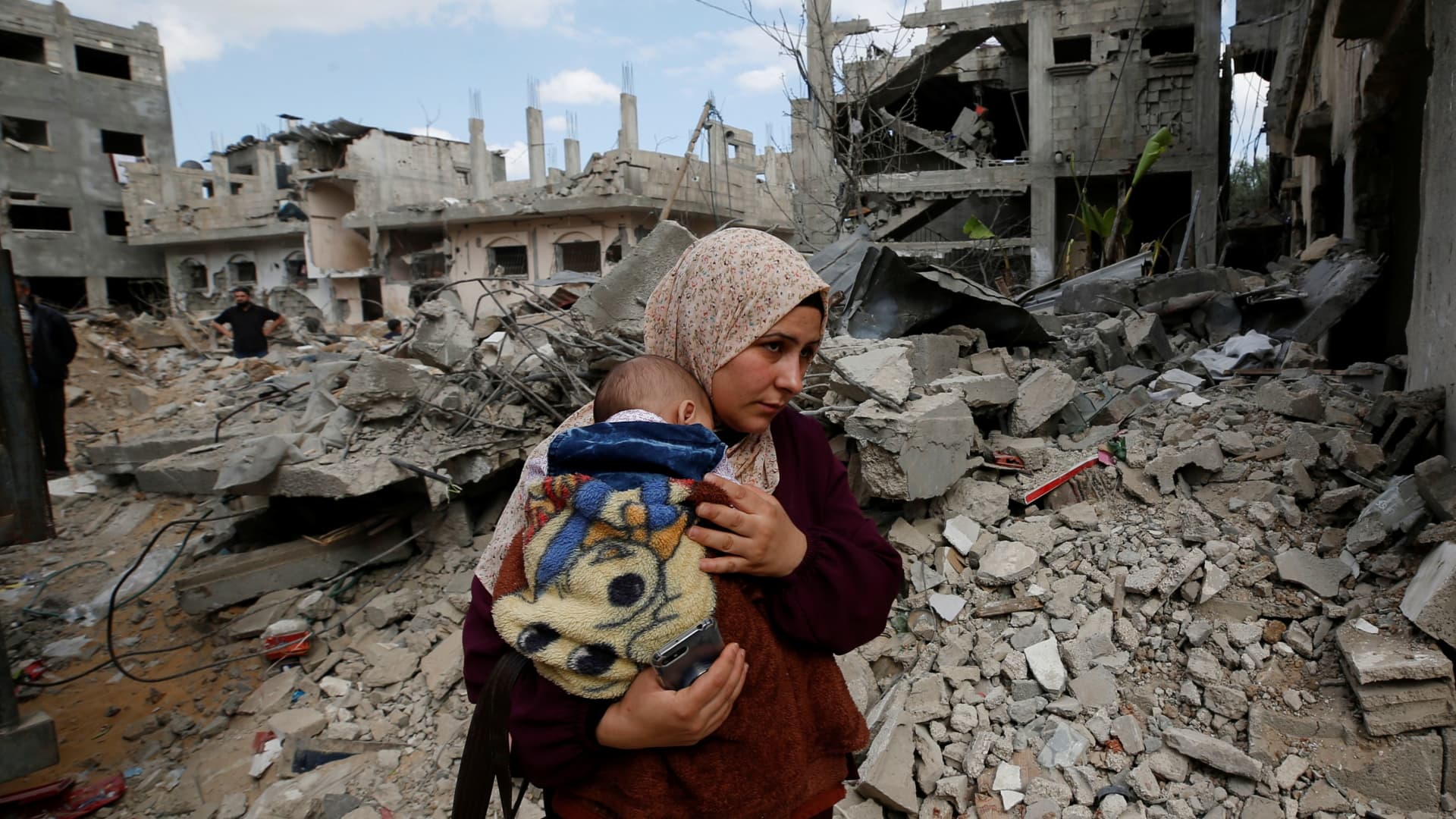
- Secretary of State Antony Blinken headed to the Middle East on Monday in an effort to ensure that the cease-fire between Israel and Hamas holds, after nearly two weeks of fighting.
- The White House said part of the trip will involve Blinken meeting with Israeli leaders "about our ironclad commitment to Israel's security."
- Blinken is also scheduled to focus on the U.S.-Palestinian relationship.
Secretary of State Antony Blinken headed to the Middle East on Monday in an effort to ensure that the cease-fire between Israel and Hamas holds.
"The most important thing is that the cease-fire does hold. It's extremely important that it does. We don't want to see a return to the bloodshed that was heartbreaking during the 11-day conflict," a senior State Department official said of the trip.
Blinken will travel to Jerusalem, Ramallah, Cairo and Amman through Thursday and meet with Israeli Prime Minister Benjamin Netanyahu, Palestinian Authority President Mahmoud Abbas, Egyptian President Abdel Fattah Al-Sisi, Jordan's King Abdullah and other top officials.
We're making it easier for you to find stories that matter with our new newsletter — The 4Front. Sign up here and get news that is important for you to your inbox.
"Following up on our quiet, intensive diplomacy to bring about a ceasefire between Israel and Hamas, I have asked my Secretary of State, Tony Blinken, to travel to the Middle East this week," President Joe Biden said in a statement on Monday, emphasizing that part of the trip will involve Blinken meeting with Israeli leaders "about our ironclad commitment to Israel's security."
Blinken will also focus on the U.S.-Palestinian relationship, which the Biden statement described as "our Administration's efforts to rebuild ties to, and support for, the Palestinian people and leaders, after years of neglect."
Israel's security Cabinet voted Thursday to approve a tentative cease-fire after 11 days of fighting with Hamas in Israel and the Gaza Strip, the worst violence the area has seen since 2014. Negotiations leading to the cease-fire were led by Egypt, the only country with open communication lines with Israel and Hamas, the U.S.-designated terrorist group that governs the Gaza Strip.
Money Report
The news of a cease-fire came on the heels of a call Wednesday between Biden and Netanyahu. During that call, Biden said he expected a "significant de-escalation" in violence, according to the White House.
It was their fourth conversation since violence erupted between Israel and Hamas, a Palestinian Islamic political party with an armed wing of the same name that controls the Gaza Strip.
Israeli airstrikes and internecine fighting killed more than 220 Palestinians in Gaza over 11 days, including more than 100 women and children. During that time Hamas fired more than 4,000 rockets into Israel, killing 12 people, including two children.
Biden came under fire from human rights groups and progressive Democrats for perceived inaction as the conflict escalated and for his administration's continued financial and military support for Israel. His administration has revived some support for Palestinians, restoring $235 million in U.S. aid — most of which will go to the UN's refugee program for Palestinians — which was completely cut under the Trump administration.
The U.S. provides Israel with $3.8 billion annually in military aid. In early May before the fighting began, the Biden administration approved selling $735 million in precision-guided munitions to Israel — a sale that several progressive Democrats are now trying to halt.

The violence in the blockaded Gaza Strip, the Israeli-occupied West Bank, Jerusalem and several places in Israel was triggered by protests surrounding the threat of evictions of some Palestinians from their homes in east Jerusalem by the Israeli government.
The demonstrations, largely peaceful but including rock throwing, brought on a harsh Israeli response, such as firing stun grenades into the Al-Aqsa Mosque complex during prayers in the holy month of Ramadan. In response, Hamas fired rocket barrages from Gaza into Jerusalem, Tel Aviv and elsewhere in Israel.
Israel then launched airstrikes that the military said was targeted at Hamas, but in the process bombed multiple civilian homes as well as a building housing foreign media outlets including The Associated Press.
Israel has occupied the West Bank and east Jerusalem since the 1967 war, building Jewish settlements that the majority of the international community considers illegal under international law. Israel rejects this.
Natasha Turak reported from Dubai. Amanda Macias reported from Washington.






